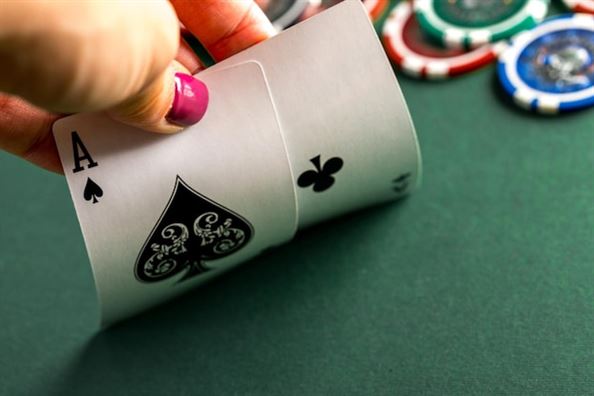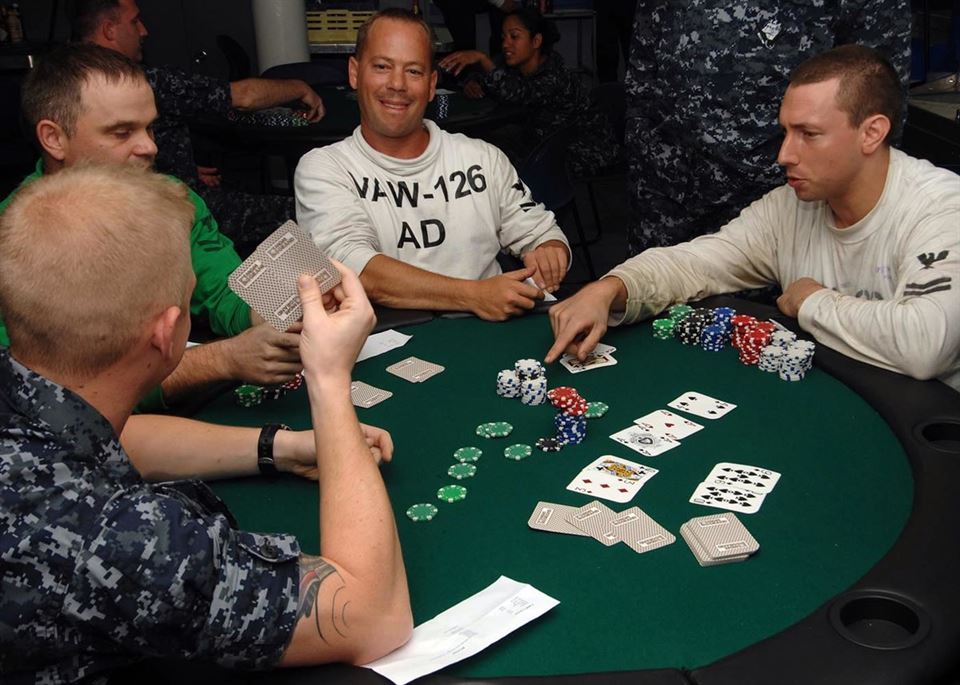Balancing gambling and other aspects of life can be a challenging task for many individuals. While gambling can be a fun and exciting activity, it can also become addictive and lead to negative consequences in other areas of life. In this article, we will explore some tips and strategies for maintaining a healthy balance between gambling and other important aspects of life, such as work, family, and personal well-being.
5 Tips for Balancing Gambling and Work
Gambling can be a fun and exciting activity, but it can also become a problem if it starts to interfere with other aspects of your life. If you’re someone who enjoys gambling but also wants to maintain a healthy balance with work and other responsibilities, there are a few tips you can follow to help you achieve this.
1. Set Limits
One of the most important things you can do to balance gambling and work is to set limits for yourself. This means deciding how much time and money you’re willing to spend on gambling each week, and sticking to those limits no matter what. It can be helpful to create a budget specifically for gambling, and to only use money that you can afford to lose.
2. Prioritize Responsibilities
Another key to balancing gambling and work is to prioritize your responsibilities. This means making sure that you’re taking care of your work obligations and other important tasks before you spend time gambling. It can be helpful to create a schedule or to-do list that outlines your priorities for the day or week, and to make sure that gambling doesn’t interfere with those priorities.
3. Find Other Hobbies
If you find that gambling is taking up too much of your time and energy, it may be helpful to find other hobbies or activities that you enjoy. This can help you to take a break from gambling and to focus on other things that are important to you. Whether it’s reading, exercising, or spending time with friends and family, finding other hobbies can help you to maintain a healthy balance in your life.
4. Seek Support
If you’re struggling to balance gambling and work, it may be helpful to seek support from others. This can include talking to a therapist or counselor, joining a support group for problem gamblers, or reaching out to friends and family for help and encouragement. It’s important to remember that you don’t have to go through this alone, and that there are resources available to help you.
5. Take Breaks
Finally, it’s important to take breaks from gambling on a regular basis. This means taking time away from the casino or online gambling sites, and focusing on other things that are important to you. Whether it’s taking a vacation, spending time with loved ones, or simply taking a day off to relax and recharge, taking breaks can help you to maintain a healthy balance in your life.
In conclusion, balancing gambling and work can be a challenge, but it’s not impossible. By setting limits, prioritizing responsibilities, finding other hobbies, seeking support, and taking breaks, you can maintain a healthy balance in your life and enjoy gambling without it becoming a problem. Remember, gambling should be a fun and enjoyable activity, not something that takes over your life.
The Importance of Setting Limits: Balancing Gambling and Family Life
One of the most important things you can do to balance gambling and other aspects of your life is to set a budget. Determine how much money you can afford to spend on gambling each month, and stick to that budget. This will help you avoid overspending and ensure that you have enough money for other important expenses, such as bills and groceries.
Another important aspect of balancing gambling and family life is to set aside specific times for gambling. Don’t let gambling take over your entire day or week. Instead, set aside a specific time each week or month to enjoy your favorite games. This will help you stay focused on other responsibilities and ensure that you’re not neglecting your family or work.
It’s also important to communicate with your family about your gambling habits. Let them know how much money you’re spending and how often you’re gambling. This will help them understand your habits and ensure that they’re not worried about your behavior. It’s also important to listen to their concerns and be willing to make changes if necessary.
If you find that gambling is starting to interfere with your family life or work, it may be time to seek help. There are many resources available for those who are struggling with gambling addiction, including support groups, counseling, and treatment programs. Don’t be afraid to reach out for help if you need it.
In addition to setting limits and communicating with your family, there are other things you can do to balance gambling and other aspects of your life. For example, you can try to find other hobbies or activities that you enjoy, such as sports, reading, or spending time with friends. This will help you stay busy and engaged in other areas of your life, which can help reduce the urge to gamble.
It’s also important to take care of yourself physically and mentally. Make sure you’re getting enough sleep, eating a healthy diet, and exercising regularly. This will help you stay focused and energized, which can help you make better decisions when it comes to gambling and other aspects of your life.
In conclusion, balancing gambling and other aspects of your life is important for maintaining a healthy and happy lifestyle. Setting limits, communicating with your family, seeking help if necessary, and finding other hobbies and activities are all important steps you can take to achieve this balance. Remember to take care of yourself physically and mentally, and don’t be afraid to reach out for help if you need it. With the right mindset and approach, you can enjoy gambling while still maintaining a fulfilling and balanced life.
Finding a Healthy Balance: Balancing Gambling and Physical Fitness
Firstly, it is important to set limits for yourself when it comes to gambling. This means deciding how much time and money you are willing to spend on gambling each week. It is also important to stick to these limits and not exceed them. This will help you avoid getting into debt or neglecting other important areas of your life.
In addition to setting limits, it is also important to prioritize physical fitness. Regular exercise can help reduce stress and improve overall health and well-being. This can be especially important for those who gamble frequently, as gambling can be a stressful activity that can take a toll on both mental and physical health.
One way to incorporate physical fitness into your routine is to make it a part of your gambling activities. For example, you could take a break from gambling to go for a walk or jog around the casino or play a game of basketball or tennis with friends. This can help you stay active and reduce the amount of time you spend sitting and gambling.
Another way to balance gambling and physical fitness is to find other activities that you enjoy. This could include anything from hiking and biking to yoga and meditation. By finding activities that you enjoy, you can reduce the amount of time you spend gambling and increase the amount of time you spend doing things that are good for your physical and mental health.
It is also important to remember that gambling should never be used as a way to cope with stress or other problems in your life. If you find yourself turning to gambling as a way to escape from your problems, it may be time to seek help. This could include talking to a therapist or joining a support group for problem gamblers.
In conclusion, finding a healthy balance between gambling and physical fitness is essential to maintaining a happy and fulfilling life. By setting limits, prioritizing physical fitness, and finding other activities that you enjoy, you can reduce the amount of time you spend gambling and increase the amount of time you spend doing things that are good for your physical and mental health. Remember, gambling should never be used as a way to cope with stress or other problems in your life. If you find yourself struggling with problem gambling, seek help from a professional.
Balancing Gambling and Mental Health: Strategies for Self-Care
First and foremost, it’s important to set limits for yourself when it comes to gambling. This means setting a budget for how much money you’re willing to spend on gambling, as well as a time limit for how long you’ll spend at the casino or playing online. Stick to these limits, even if you’re on a winning streak or feeling particularly lucky. It’s easy to get caught up in the excitement of gambling, but setting limits can help you stay in control and avoid overspending or neglecting other responsibilities.
Another important strategy for balancing gambling and mental health is to take breaks. This means taking breaks from gambling itself, as well as taking breaks from other stressors in your life. If you’re feeling overwhelmed or stressed out, take a break from gambling and do something else that you enjoy, such as reading a book, going for a walk, or spending time with friends and family. Taking breaks can help you recharge and refocus, so you can return to gambling with a clear head and a positive attitude.
It’s also important to practice self-care when it comes to gambling and mental health. This means taking care of your physical and emotional well-being, so you can better handle the ups and downs of gambling. Some self-care strategies include getting enough sleep, eating a healthy diet, exercising regularly, and practicing relaxation techniques such as meditation or deep breathing. Taking care of yourself can help you feel more balanced and centered, which can in turn help you make better decisions when it comes to gambling.
Another important aspect of balancing gambling and mental health is to seek support when you need it. This can mean talking to a trusted friend or family member about your gambling habits, or seeking professional help from a therapist or counselor. It’s important to remember that gambling addiction is a real and serious problem, and seeking help is a sign of strength, not weakness. If you’re struggling with gambling addiction, there are resources available to help you get back on track and regain control of your life.
Finally, it’s important to remember that gambling should be a fun and enjoyable activity, not a source of stress or anxiety. If you find that gambling is causing you more harm than good, it may be time to take a step back and reevaluate your relationship with gambling. Remember that there are many other ways to have fun and enjoy life, and that gambling should never come at the expense of your mental health or overall well-being.
In conclusion, balancing gambling and mental health is all about finding a healthy and sustainable balance between the thrill of gambling and the other responsibilities and priorities in your life. By setting limits, taking breaks, practicing self-care, seeking support, and remembering to have fun, you can enjoy the excitement of gambling without sacrificing your overall well-being. Remember to always gamble responsibly, and to prioritize your mental health and well-being above all else.
The Social Side of Gambling: Balancing Gambling and Relationships
It’s important to remember that gambling should never take priority over your relationships. If you find yourself canceling plans with loved ones or neglecting important responsibilities in order to gamble, it’s time to take a step back and reevaluate your priorities.
One way to balance gambling and relationships is to set aside specific times for gambling. This can help you avoid the temptation to gamble at all hours of the day and night, and it can also help you plan your social activities around your gambling schedule.
Another important aspect of balancing gambling and relationships is communication. It’s important to be open and honest with your loved ones about your gambling habits, and to listen to their concerns and feedback. If your loved ones are worried about your gambling, it’s important to take their concerns seriously and to work together to find a solution that works for everyone.
In addition to setting aside specific times for gambling and communicating with loved ones, it’s also important to prioritize your relationships over gambling. This means making time for social activities and spending quality time with loved ones, even if it means cutting back on your gambling activities.
It’s also important to remember that gambling can be a social activity in and of itself. If you enjoy gambling, consider inviting friends or family members to join you for a night out at the casino or a friendly game of poker at home. This can help you enjoy your gambling activities while also strengthening your relationships with loved ones.
Finally, it’s important to seek help if you feel that your gambling habits are becoming a problem. There are many resources available for individuals who struggle with gambling addiction, including support groups, counseling services, and treatment programs. By seeking help early on, you can prevent your gambling habits from causing serious problems in your relationships and other areas of your life.
In conclusion, balancing gambling and relationships is an important aspect of maintaining a healthy and fulfilling life. By setting aside specific times for gambling, communicating with loved ones, prioritizing relationships over gambling, and seeking help if necessary, you can enjoy your gambling activities while also maintaining strong and meaningful relationships with those around you. Remember, gambling should never take priority over your relationships, and it’s important to always keep this in mind as you navigate the world of gambling and social activities.
Balancing Gambling and Financial Responsibility: Tips for Managing Your Bankroll
Gambling can be a fun and exciting activity, but it can also be addictive and lead to financial problems. It is important to balance gambling with other aspects of life, such as work, family, and financial responsibility. In this article, we will discuss tips for managing your bankroll and balancing gambling with financial responsibility.
The first step in balancing gambling and financial responsibility is to set a budget for your gambling activities. Determine how much money you can afford to lose without causing financial hardship. This amount should be separate from your regular monthly expenses, such as rent, utilities, and groceries. Stick to this budget and do not exceed it, even if you are on a winning streak.
Another important tip for managing your bankroll is to only gamble with money that you can afford to lose. Do not use money that is earmarked for other expenses, such as your child’s college fund or your retirement savings. Gambling should be viewed as entertainment, not as a way to make money or solve financial problems.
It is also important to keep track of your wins and losses. This will help you to determine if you are staying within your budget and if you need to adjust your gambling habits. Keep a record of your gambling activities, including the date, location, amount of money wagered, and outcome. This will also help you to identify any patterns or triggers that may lead to excessive gambling.
In addition to setting a budget and keeping track of your wins and losses, it is important to take breaks from gambling. This will help you to maintain a healthy balance between gambling and other aspects of life. Take a break from gambling if you are feeling stressed, anxious, or overwhelmed. Engage in other activities, such as exercise, reading, or spending time with friends and family.
Finally, seek help if you feel that your gambling is becoming a problem. Gambling addiction is a serious condition that can lead to financial ruin, relationship problems, and other negative consequences. If you are experiencing symptoms of gambling addiction, such as preoccupation with gambling, loss of control, and continued gambling despite negative consequences, seek professional help. There are many resources available, including support groups, counseling, and treatment programs.
In conclusion, balancing gambling and financial responsibility is essential for maintaining a healthy and fulfilling life. Set a budget for your gambling activities, only gamble with money that you can afford to lose, keep track of your wins and losses, take breaks from gambling, and seek help if you feel that your gambling is becoming a problem. By following these tips, you can enjoy the excitement of gambling without sacrificing your financial stability or other aspects of your life.
Balancing gambling and other aspects of life requires discipline, self-control, and a clear understanding of priorities. It is important to set limits on time and money spent on gambling, and to prioritize responsibilities such as work, family, and personal well-being. Seeking support from loved ones or professional resources can also be helpful in maintaining a healthy balance. Ultimately, finding a balance between gambling and other aspects of life is crucial for overall happiness and success.




